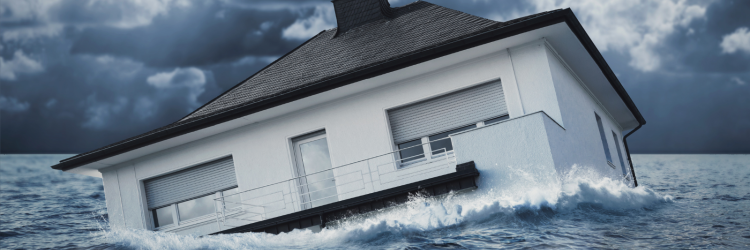The flash flooding in Texas has, tragically, killed more than 100 people, and much-deserved finger pointing has begun about who all is to blame. As responsibility gets sorted out over the coming weeks and months, I think we need to recognize another aspect of the problem, one that goes well beyond local, state and federal authorities. We humans just don't think and behave right.
The flood happened in what's known as the most dangerous river valley in the U.S., but local and state officials have for years decided not to install early warning systems because they didn't think voters would approve of the spending. Lots of people discounted the forecasts of heavy rain that the National Weather Service issued in the days leading up to the floods.
If we can't even prepare for flooding in what's known as Flash Flood Alley, where can we get it right?
I'm really quite discouraged. I'm beginning to think human behavior may be intractable.
To be clear, I'm happy to point fingers at lots of people in authority. There was a massive failure to prepare here, as this story in the Washington Post describes.
State and local authorities not only didn't invest in warning systems; they also underestimated the logistical difficulties of alerting people in remote areas, even though cellphone coverage is known to be spotty and severe weather can obviously cause power outages. At the federal level, the DOGE chainsaw led to some 600 people being cut at the National Weather Service or taking early retirement this spring, and many experts say the lack of personnel likely contributed to the inadequacy of warnings about the Texas flood.
The problem will get worse at the federal level, too, because the Trump administration says it will scale the Federal Emergency Management Agency (FEMA) way back or even eliminate it as part of a plan to "empower states." Already, the Trump administration has said it will, at the end of this month, cut off access to a data source that is considered to be crucial for hurricane forecasting.
But even beyond the (many) failures of authorities, I think we have to acknowledge that people really aren't built to prepare for disasters. We reason based on our personal experience, and we get complacent because we haven't experienced a flood, a wildfire, a hurricane, a tornado and so on.
I realize money is scarce in many areas and can understand why voters would be reluctant to invest in warning systems. I also realize that this flood was unprecedented in this particular area.
But we live in a time of unprecedented weather, and the problems are only going to get worse. So we need to do far better at making ourselves and our properties more resilient in the face of impending natural disasters.
Yet I'm not sure we will.
I'm not sure we can, as humans.
All I can think to do is the sort of thing I've recommended in the past, so we can at least minimized the catastrophes. Insurers have a major opportunity to guide policyholders on how to mitigate risk, including possibly offering incentives through discounts on premiums. Insurers can also help communities of people work together.
We won't solve the problem. We humans are hard-wired against a real answer, it seems. But we can have a serious rethink and at least try to do better.
That's the best I've got, I'm afraid.
Cheers,
Paul


